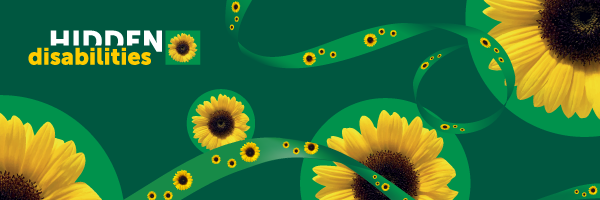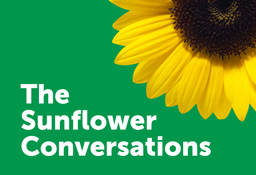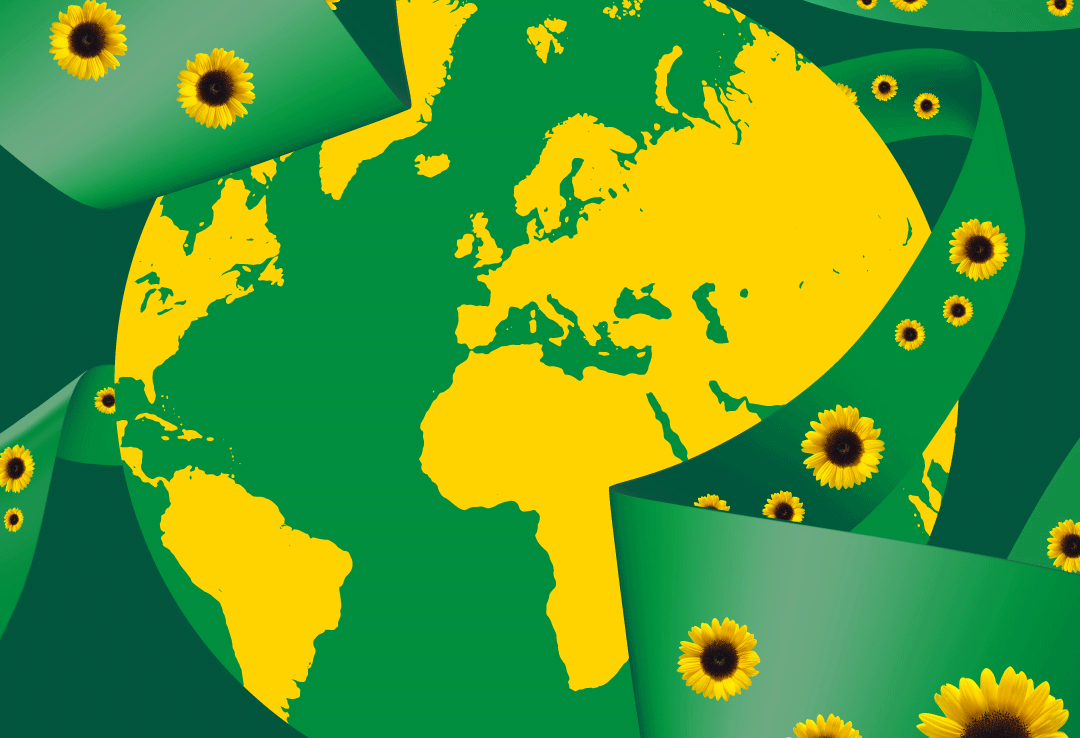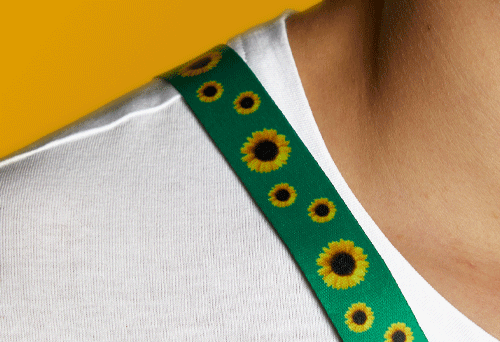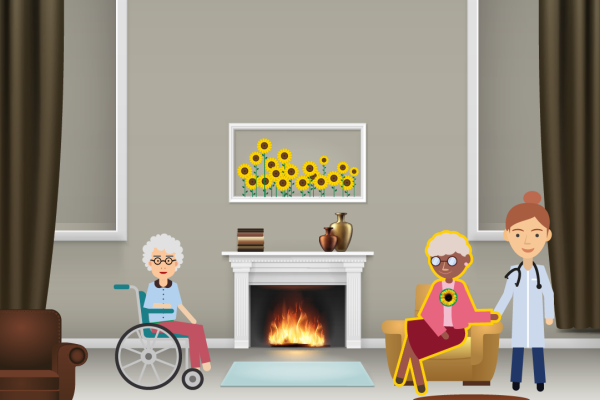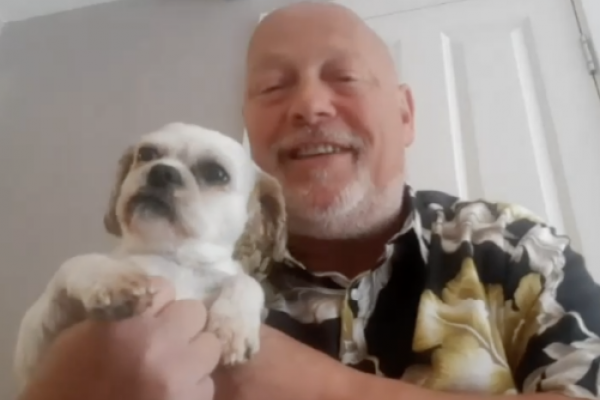"...you make great eye contact. And I never really would have guessed you're autistic"
This month, our Sunflower Conversations Podcaster in Australia and New Zealand, Peta Hooke, interviews Althea, talking about ADHD and Autism. Althea discusses her experience with public perceptions and how mainstream schools and public transport may not be well suited to support Autistic students.
The Sunflower Conversations is a Podcast where we explore the experiences of people living with hidden disabilities and what the Sunflower means to them. It’s a space to share your experience and to empower and encourage more people to support invisible disabilities.
A big thank you to Peta Hooke for conducting the interviews with compassion and respect and to Sandee Facy for the beautiful Sunflower song. You can follow Peta's I can't stand podcast here and Sandee Facy's music here.
If you want to share your experience, get in touch with us by emailing us here.
Transcript:
Peta [00:00:00] I would like to acknowledge the traditional custodians of land and waters of which this podcast is recorded, especially to those with a disability themselves. Hello and welcome to Sunflower Conversations, a podcast where we explore the experiences of people with hidden disabilities and what the Sunflower means to them. My name is Peta Hooke. I'm your host. I have cerebral palsy as well as other non-visible disabilities. Every episode we're going to be chatting with a different Sunflower wearer to understand what it's like for them to identify as somebody with a hidden disability and how people can best support them in different circumstances. Let's add a little bit of Sunflower sunshine to your day and get started.
Althea [00:01:04] Hi, my name is Althea. I'm 16 and I use she her pronouns. I live in Melbourne, Australia and I am autistic and I have ADHD.
Peta [00:01:15] What do you think people misunderstand about your disability in particular?
Althea [00:01:20] The main thing is especially with autism is the way it presents. So in the media and all the examples that we see of autism is the stereotype of the small white boy. I am white, but I am not a small boy. So it means that it presents very differently. So I do get comments occasionally. It's like, oh, but you make great eye contact. And I never really would have guessed you're autistic, but I am autistic and that is a part of me. It's just it presents slightly differently. And we need to really need to accept all the different presentations of it in order for everyone to be accepted and have more equal world.
Peta [00:01:54] That sounds really challenging to to have people not believe you that you have a disability like that must be really frustrating thing. Would you say that's the main challenge that you face when you walk out the door every morning? What what are the challenges you face out in the world?
Althea [00:02:11] The majority of the world is neurotypical, meaning that most things are built by neurotypical people for neurotypical people, and especially things like school, are really, really tricky for neurodiverse people. I got denied a lot of accommodations in school. I still am in school. I'm 16; but I am now homeschooled. I asked to wear these, not even headphones. They were like, you know, like the tradie ear defenders. I was denied those because they looked like headphones. They were a distraction. I needed breaks, I needed like extra support, but I wasn't getting any of that. And eventually, the person who's in charge of all this. There was a lady who was the head of head of my year level when I was in year nine. All this stuff was happening. And then in year 10 she got promoted to the, the principal team for inclusion. I feel like, school was really my main like struggle because it led to me being in so much burnout and like so much sensory overload so often that I really just couldn't do it. And that's why I'm in homeschool now.
Peta [00:03:14] I think it's quite a common thing for disabled people to really struggle at school. But when I speak to a young person like yourself, it really makes me sad. Annoys me, frustrates me to think that we're not improving. Naively, I sort of think the world is progressing, but clearly we've still got a long way to go. So when we think about the Sunflower lanyard, when do you wear it?
Althea [00:03:38] It really depends on where staff have been trained to recognise it, because there's no point wearing it too, like I don't know the shops. If none of the staff there have been trained in what it is. The main place that I do. Where is the trains and like public transport. And it's a really great way to show I need help. Sometimes. Sometimes I need like a little quiet space, or I need information presented to me in a different way. The best story I have is one I think it was about July last year. We were visiting the NGV and I got there and I was already feeling very, very overwhelmed. I had my ear, just my headphones on, these ones cancelling ones. I had like my sunnies on. I had like fidget toys and steam toys and I was trying really, really hard. But about halfway through I realised I could not cope with this. I really need to go home like I was. It was too much and I was like, oh, like, you bit you guys stay. Like, I don't want to like, you know, ruin your thing. You stay. And so they stayed. And I went and headed off to Flinders street station and I got there and the electronic board. So they say, what train's coming next? Those were all down. They didn't say anything. So I went to the information desk because of announcements like every like minute or so because I couldn't hear them very well because of these, [referring to headphones] and also because when I'm really in that heightened state, my sensory processing goes out the window. And with it that extra like, you know, like crackly sound over announcements. I could not hear what they were saying. So went the information desk, the lady was very very nice and obviously saw my lanyard and was like oh the trains down. Like we don't really know what's happening. It's very touch and go at the moment. Everything that will come through will be on the announcements. And I said I can't really listen to those because of my headphones and because my disability. And she said, okay, so this is this is your this is your platform. You head down that platform. There should be some people on the very end who are wearing high viz, go talk to them. I said, oh, thank you so much. And I went down there and I talked to someone and they just told me to listen to the announcements again. And I was feeling like very, very overwhelmed, like at the point of, like, almost crying and really, really everything was too much. So I didn't really have the ability to say like, oh, actually, I can't. So I sort of stood there on the platform for a while, and I don't know whether it was cause like an absolutely distressed look on my face or because I had the lanyard, but someone else came up to me, but they said, oh hi, I'm PTV worker. They point to like they're like the logo on the on the on the shirt I noticed. Do you like, do you need help? Like looked me a bit struggling and I was like, oh yeah, yeah I do, thank you. And they said oh like you waiting for train. What line you on? I said, oh I'm, I'm looking for this line. But I can't list the announcements because of that, because my disability and headphones and everything. And you said, oh yeah, and stood with me. And she waited with me and she got me on a train. And like, she made sure the right train was very, very nice. And that really, really helped me in that time because I had no one else with me I was alone.
Peta [00:06:24] Oh. That's lovely. I love to hear that. We need more people like that person. That's great. For those who are listening that don't have a disability. How would you suggest that they could help you? What's the best thing that they can do? How do they offer their best sort of help?
Althea [00:06:43] Just ask. That's like the really the main thing because some people like I might wear my lanyard on days when I'm feeling a bit like everything's a bit too much, but also I might wear it on days because also it has my myki in it which is very, very useful because you can scan it through the lanyard. It's great. And so sometimes I don't necessarily need help, but just asking and saying, like I saw you wearing the lanyard, do you need any help? That is just it's so great to hear someone like validate your disability and say like, okay, is there any I can do? Just asking means so much because historically, you know, I don't get asked if I need help if I'm not wearing it because nobody clocks me is disabled. Because being disabled is a part of my identity. Because it's not something that you can ever take away from me. It's not something I'm ever going to not be. Like I'm always going to be disabled. I'm always going to be autistic, always going to have ADHD. Being able to like, show, like, look, I'm disabled. This is. This is me. I'm right here is a really. It's a really great feeling. Because it means that, like, maybe, maybe no one will come up and ask me for help. Ask me if I need help, but maybe someone will. And that's really what's important, I think.
Peta [00:07:51] And that's another episode for Sunflower Conversations. Don't forget, you can always connect with the Sunflower between episodes either via our website HDSunflower.com/au. Via our Facebook Hidden Disabilities ANZ or via our Instagram hidden disabilities_ANZ. Those links will also be in the description. Thank you so much for listening. Until next time, have a lovely Sunflower day.
